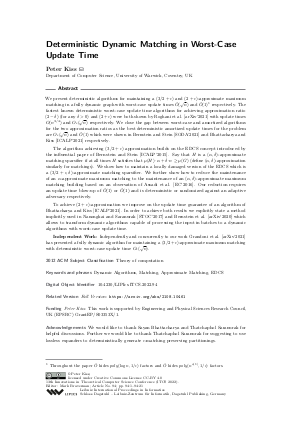LIPIcs.ITCS.2022.94.pdf
- Filesize: 0.82 MB
- 21 pages

 Creative Commons Attribution 4.0 International license
Creative Commons Attribution 4.0 International license

















































Feedback for Dagstuhl Publishing